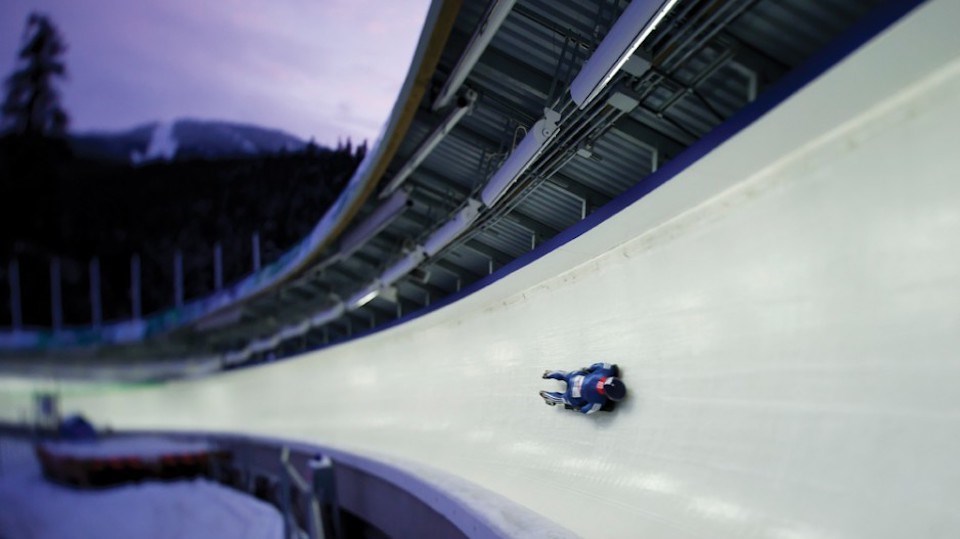If Metro Vancouver were to host another Winter Olympic Games in the next decade, Whistler and the Sea-to-Sky corridor will likely play as crucial a role in hosting key events as they did in 2010.
And Whistler and the region’s 2010 Games infrastructure for the most part would be ready, said the man who has been in charge of managing the facilities since 2013.
“Considering we are coming on to 12 years old, all of our facilities are still competition-ready,” said Roger Soane, president and CEO of Whistler Sport Legacies (WSL), the non-profit society that has been in charge of operating the Whistler Olympic Park, Sliding Centre and Athletes Centre since 2010. “We can host world-class events at all of our venues right now. Of course, in 2030, we will be 20 years old, and a lot of that will need to be updated and upgraded, but we are not talking hundreds of millions of dollars.”
In 2010, the region’s contribution to hosting the Games was vital. The Whistler Olympic Park in the Callaghan Valley was the site of the biathlon, cross-country skiing, nordic combined and ski jumping events that would have been nearly impossible to hold elsewhere in the Lower Mainland.
The sliding centre, meanwhile, handled all bobsleigh, luge and skeleton events.
Along with Whistler Blackcomb’s Creekside area (alpine skiing) and West Vancouver’s Cypress Mountain (freestyle skiing and snowboarding), the corridor hosted a major portion of the 2010 Games. Soane’s team has been working to boost revenue from the facilities, stabilize their operations and foster public interest in the winter sports they are used for as part of the Olympic legacy in B.C.
Upgrades of the facilities needed for the 2030 Games would be primarily computer software related, and investments are being made to increase Olympic Park’s snowmaking capacity for winters with low snowfall amounts.
Whistler’s sliding centre has regular top-tier competition bookings. It hosted bobsleigh and skeleton world championships two years ago and is scheduled to be the site of the world luge championships in 2025.
Soane said the biathlon facility is also regularly used by local clubs and has hosted the next generation of Canadian biathlon athletes competing at the national level.
But ski jumps are a challenge. Although Whistler’s Olympic Park has the only major ski jump facility in Canada, top Canadian ski jumpers train in Utah because they want ski jump facilities that are open year-round.
“The ski jumps are the ones used the least,” Soane said. “They were never built as a training facility. They were built for the 2010 Games, and they were meant to be taken down after the Games, but the costs to take them down are quite substantial. So it was decided to keep them, and we said, ‘Let’s see if we can start a jumping community here locally.’ We’ve been somewhat successful, but it’s the one sport we struggle with the most.”
Another area of potential concern for 2030 Games readiness is the non-competition side.
The former Olympic Village/Athletes Centre has a lodge regularly full of competitors coming to Whistler for competitions. The townhomes at the village, meanwhile, are 100 per cent occupied, and Soane said WSL is halfway through building an additional apartment building on-site to fulfil housing needs of athletes, workers and the local community. So there would be no room to host more athletes if there were to be a 2030 Games.
“That is the biggest question mark on 2030,” Soane said. “The Athletes Village now is taken by people who live in Whistler, so a new village would have to be built.”
But there are options.
Soane suggested a “satellite” approach that would include housing spread out in the Callaghan Valley near the Olympic Park, throughout the Whistler community and even some as far out as Squamish, where additional housing should be welcomed. He said the housing at some satellite sites could be temporary to further reduce costs.
And with cost and sustainability now key factors for deciding where Olympic Games are held, Whistler’s wealth of Games-ready infrastructure would be attractive to the International Olympic Committee should B.C. bid for a future Winter Games.
“We are now the only sliding centre in Canada,” Soane said. “We are the only sky jump. So it would be a good news story if another Games were to come to fruition. It could be one of the least expensive Games ever put on, because we have all the facilities.”



